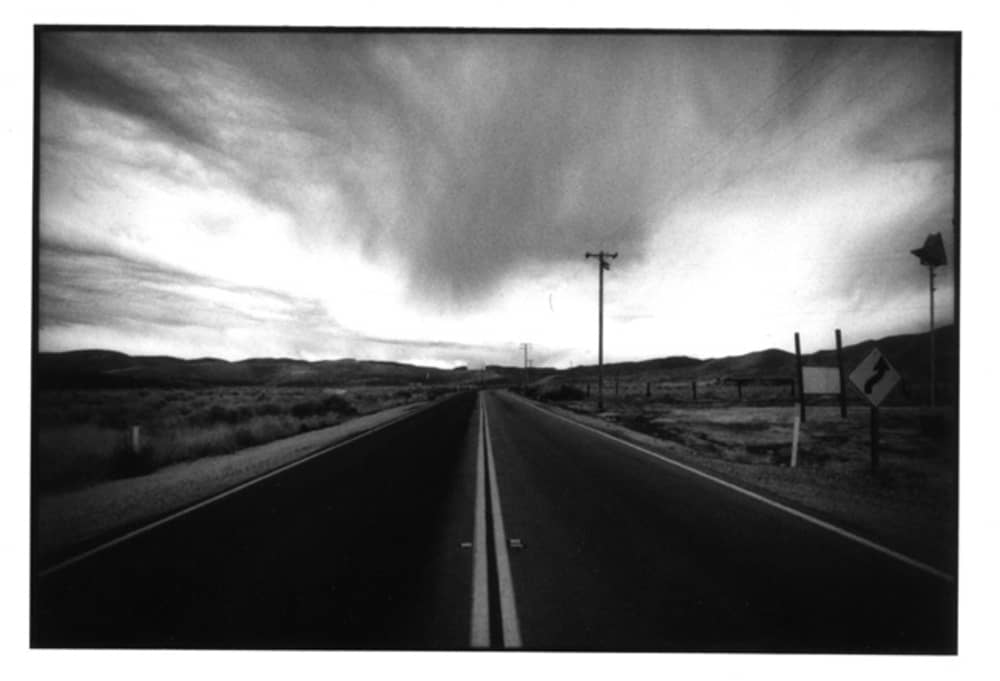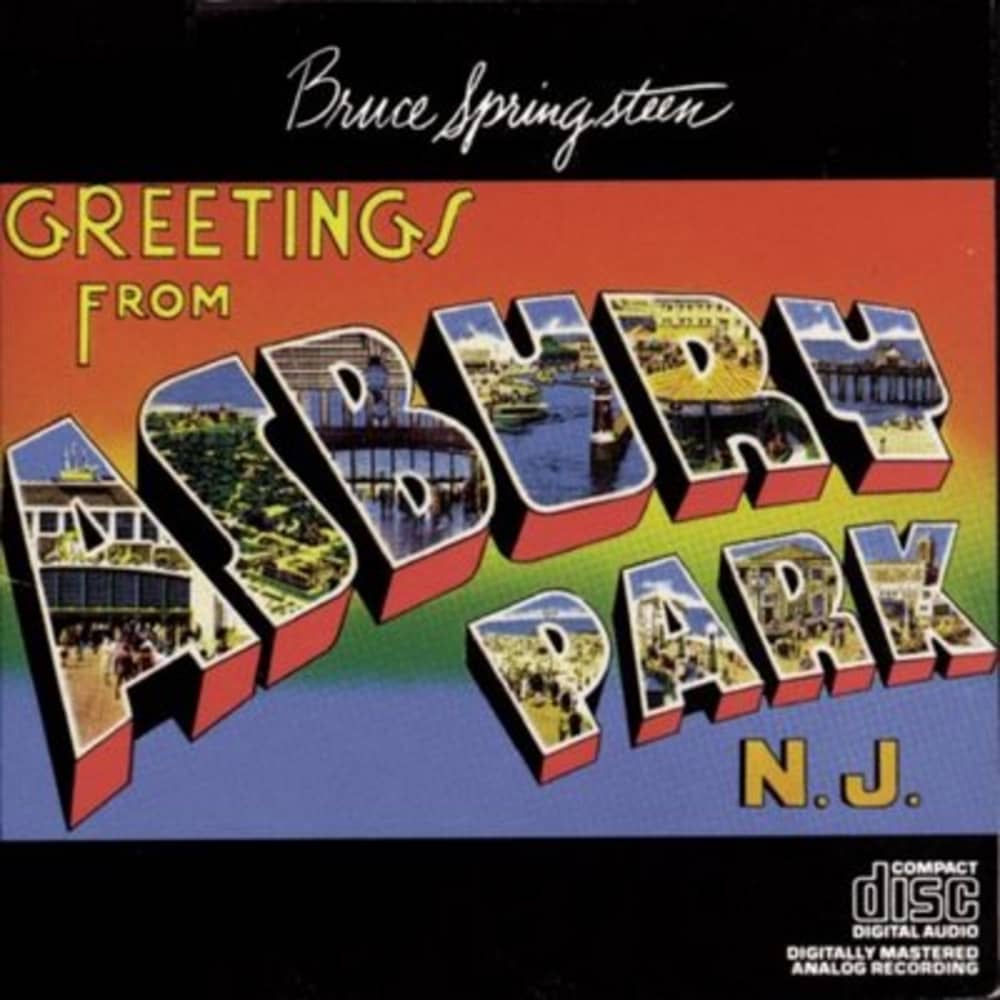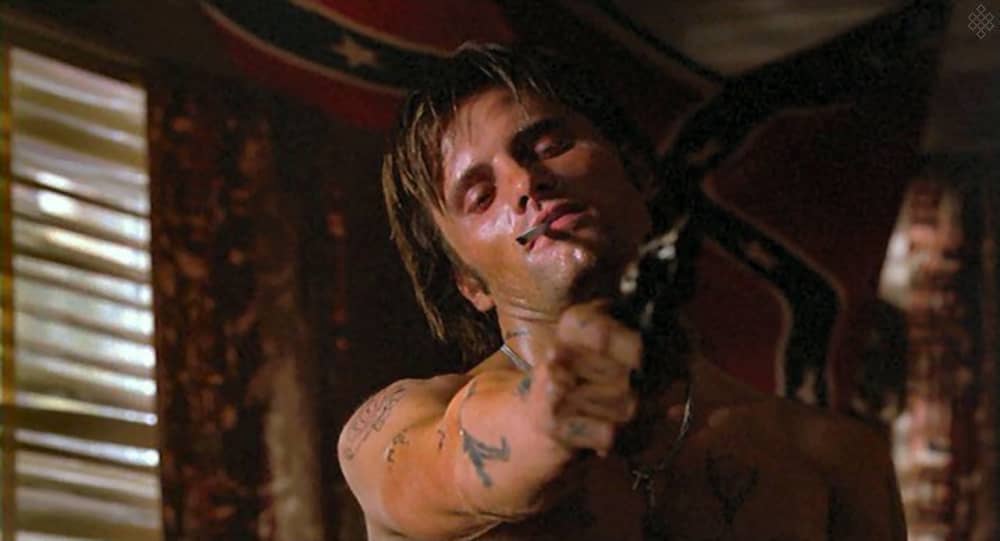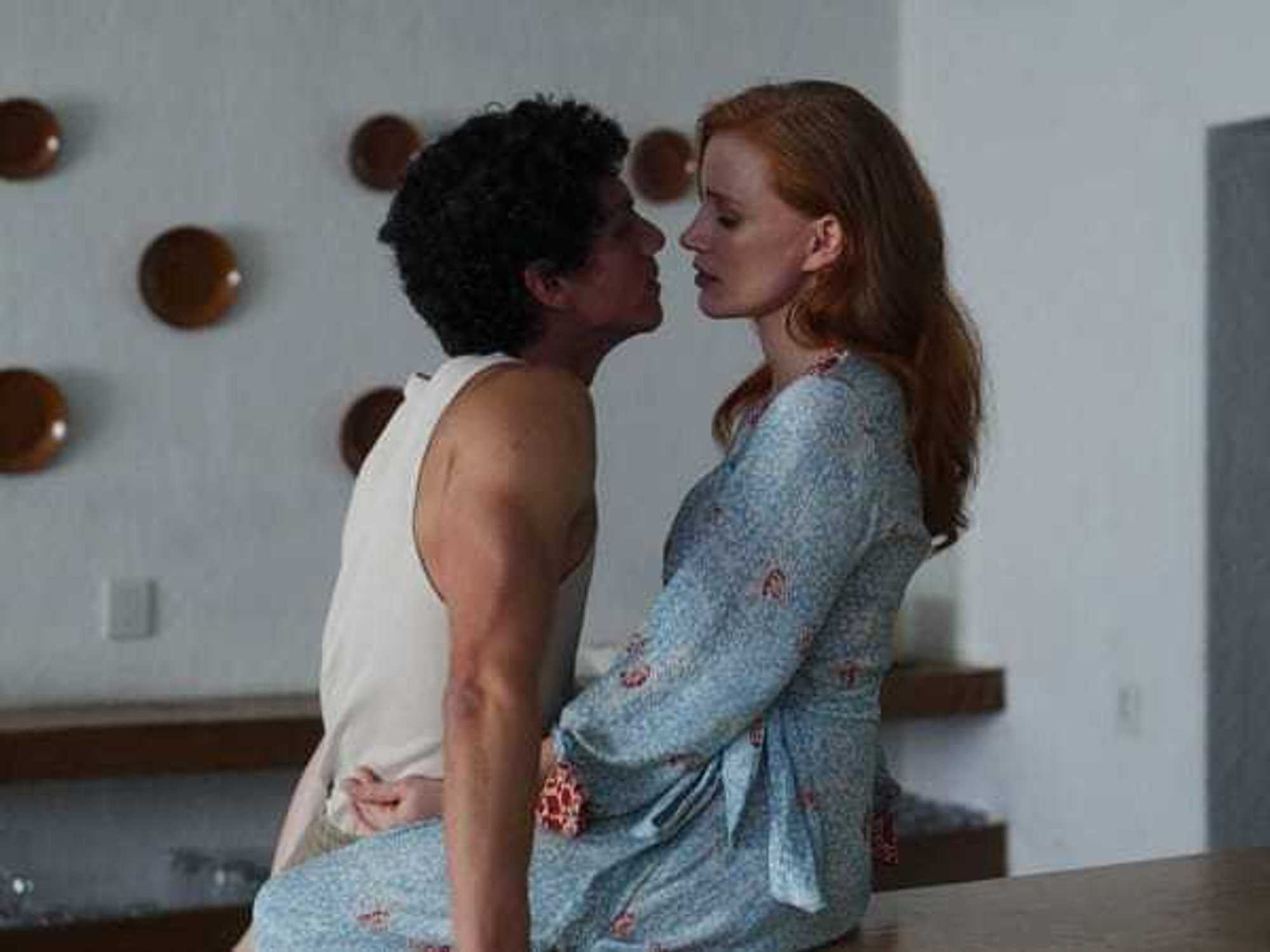No Retreat, No Surrender
Is there a haunting suicide in Bruce Springsteen's past? Questions & debateabounds as The Ultimate Countdown hits songs 20-11
 Thunder Road is a great song, but it's not good enough to crack The UltimateSpringsteen Countdown Top 10.
Thunder Road is a great song, but it's not good enough to crack The UltimateSpringsteen Countdown Top 10. Bruce Springsteeen's first studio album is still powerful enough to bringunanswered questions 37 years later.
Bruce Springsteeen's first studio album is still powerful enough to bringunanswered questions 37 years later. Only one week left before Springsteen walks off our stage.
Only one week left before Springsteen walks off our stage. Sean Penn was so taken with Springsteen's "Highway Patrolman" that he "retired"from acting to direct a movie based on it.
Sean Penn was so taken with Springsteen's "Highway Patrolman" that he "retired"from acting to direct a movie based on it.
You'd think that everyone who cares to would know everything there possibly is to know about Bruce Springsteen by now.
This 60-year-old rock icon has been in the public eye for four decades and his songs have been dissected and analyzed at a level that few works since Shakespeare's have been. Yet, The Boss continues to surprise.
He did it last Saturday night when he showed up unannounced at the Stone Pony — the tiny Jersey Shore club that helped give him his start — to jam with Alejandro Escovedo. And this week's edition of The Ultimate Springsteen Countdown — the second to last article in CultureMap's series — shows that even The Boss' oldest work isn't easily tied up into neat bows. For a song on Springsteen's very first studio album, which came out 37 years ago, has this critic once again butting heads with Springsteen biographer Dave Marsh.
Will we ever really 100 percent know if the girl in "For You" committed suicide? Do we even want to know for certain?
This debate illustrates the power of Springsteen. Of course, so does the cinematic song about two brothers on opposite sides of the law that Sean Penn couldn't help but turn into a movie. Not to mention a piece that explains Atlantic City much more than generations of politicians have been able to in the years since Springsteen's stab.
Are you certain which songs have made The Ultimate Springsteen Countdown's Top 10 now?
"Thunder Road" is on the outside looking in.
Song 20: “Tenth Avenue Freezeout”
Album: Born to Run
Adobe Flash Required for flash player.
When all else fails in your life, you should go out and form yourself a band. That seems to be the lesson imparted in this classic party-starter off Born To Run. If you can find a band as lethal as the E Street band, well, kid, then you’ve really got it beat.
A spiritual if not factual autobiography of how Springsteen was at a bit of an artistic crossroads until his group came together, “Tenth Avenue Freeze Out” is all about camaraderie, no matter what form it takes. There is real melancholy and desperation to be found in this midst of this good-times track. Hell, the first line is “Teardrops on the city.”
The frustration that Springsteen was feeling is evident in the unforgiving claustrophobia of those first two verses, and the loneliness is there in the sad realization of the bridge.
But the final verse is the triumph, as Clarence Clemons arrives to save the day with one momentous blast, blowing away all the naysayers dogging Bruce at that point. The rest of the group is along for the ride, including Garry Tallent at his funkiest and, in his E Street debut, Little Steven serving as the unofficial horn coordinator when he vocalized the way the main riff should sound to the shocked session men.
So, when you’re in your own personal freeze-out, no matter your location, if you don’t yet have your own band assembled, I would recommend using this recording to blast you on through until help arrives. The E Street Band would be more than happy to oblige.
Song 19: “Stolen Car”
Album: The River
Adobe Flash Required for flash player.
A portrait of marital discomfort so harrowing that you half expect it to be on Tunnel Of Love, “Stolen Car” actually found its way onto The River, perhaps proving Bruce’s clairvoyance. You can hear an early version on Tracks, much more fleshed-out and detailed, but the official release is the one that works the best. It suggests more than it overtly says, and that makes it much more haunting.
I guess you could read this guy as literally driving a stolen car here, but I’ve always felt that it was more of a symbolic thing where his dark feelings about his marriage sort of spill into his subconscious. The midnight rides are a desperate search for some sort of jolt to shake him out of his doldrums: “Each night I wait to get caught/But I never do.”
More than anything, the music is the star here, evocative of a dark ride to a point of no return. Springsteen’s rhythm guitar is accompanied only by Roy Bittan’s ethereal piano and an occasional timpani blast from Max Weinberg. The moaning backing vocals are like apparitions, the dreaded disappeared that the narrator fears he may one day become.
Danny Federici’s closing organ solo has the effect of cleansing these doomed souls, a brief bit of solace in an endless night, softening the morbid proceedings just enough. “Stolen Car” is all subtle hints and empty spaces, a case of less not only being more, but telling the whole story.
Song 18: “Thunder Road”
Album: Born To Run
Adobe Flash Required for flash player.
“The screen door slams/Mary’s dress waves.” It doesn’t get much more iconic than that, does it?
Actually you can close your eyes, put your finger down on the lyric sheet of “Thunder Road,” and you’d probably land on a line that has resonated through rock and roll history. “You ain’t a beauty, but hey you’re all right.” “Well I got this guitar/And I learned how to make it talk.” “We got one last chance to make it real/To trade in these wings on some wheels.” And it goes on and on.
You can slam rock lyrics all you want. God knows I’ve taken some potshots at a few. But you could just read that lyric sheet, without hearing an ounce of music, and be genuinely moved. And it’s the subtle touches too, like the choice of words.
For instance, when the narrator asks Mary to come along to “case” the Promised Land. Well, that’s perfect, isn’t it? Because they are outsiders looking in on that world, and, like thieves or trespassers, their only entrance can be gained through some sort of conceit, and they’ll likely be caught in the end.
Because that’s the thing about “Thunder Road”: You can’t ever be sure if they make it or not. Maybe in the official release of the song, with the rock guitars and the fast pace, leading to that majestic fade-out with Clemons’ sax and Bittan’s piano, they do.
But what about in the live versions where Bruce is accompanied just by the piano, as lonely a voice as Roy Orbison's ever was? Do you think she goes with him then? And if she does, do they make it, or does Thunder Road claim them as victims, like the “killer in the sun” it is?
You can dive into these lyrics for days and never come up for air. The music, on the recorded version, always seems to me to be huffing and puffing a bit to keep up with it all, which is why I don’t have this song even higher. But that’s nitpicking.
I admit. “Thunder Road” is one of the best album-opening songs of all-time, and it is one of Springsteen’s signature songs, which alone makes it special. And what better way to end the write-up that with Bruce’s final farewell: “It’s a town full of losers/And I’m pulling out of here to win.”
Song 19: “Meeting Across the River”
Album: Born to Run
Adobe Flash Required for flash player.
One of Bruce’s most underrated talents is his ability to match the tenor of his lyrics with the perfect musical accompaniment. Boy, does he ever nail it on “Meeting Across The River.” Pairing the exploits of two small-timers looking for one big score with music that’s far closer to jazz than rock was truly inspired.
A pair of non E-Streeters deserve some credit, as Richard Davis played the upright bass and Harold Brecker provided the soaring trumpet fills, both transcendent and sorrowful all at once, which is just right for these characters with high hopes and low chances of success. Roy Bittan’s film-noir piano sets these dudes right down in a harsh world of after-hours deals gone bad and characters much shadier than they could ever hope to be.
Springsteen also brilliantly keeps the content of the song contained to just the build-up to the crime, in this case just a pre-game pep talk between the narrator and his right-hand stooge, Eddie. The lyrics are effortlessly conversational, and the economy with which Bruce creates an entire back-story for these guys via just the patter of the protagonist is nothing short of masterful.
With just a few short strokes, you know these guys are broke, desperate, and in way over their heads. The introduction of a weapon (“Here, stuff this in your pocket/It’ll look like you're carrying a friend.”) ups the ante on the danger of their mission to another level.
And yet Bruce garners some sympathy for these lowlifes with the final verse, in which it’s revealed that the narrator just wants the money to keep his love around. The outcome is left up to our imaginations, although we can guess, given the hints left by Bruce, what happens next.
But Springsteen was benevolent in ending this story a scene away from the climax. If we stop after “Meeting Across The River,” we can always leave this pair of hoods hopeful and unharmed. If we head to “Jungleland,” the next song on Born To Run, well, then we know how this kind of thing turns out, and it ain’t pretty.
Song 16: “Badlands”
Album: Darkness On the Edge of Town
Adobe Flash Required for flash player.
As the first song on his first album in three years, “Badlands” is the sound of Bruce Springsteen unleashing a whole bunch of pent-up frustration. Don’t forget that he was unable to record in that span as a result of a lawsuit. He could have easily come out bitching and moaning about the hiatus and people would have understood.
Instead, the prevalent mood in the song is defiance, and the song acts as a call to arms to anyone trapped in an unenviable situation to come out swinging and don’t stop until they’re clear of it. Bruce just blows away all of the negative energy with the force of his conviction, and it’s an indelible moment of self-definition that would resound throughout the rest of his career.
There are blink-and-you’ll-miss-‘em, sly allusions to his specific situation (“I’m caught in a crossfire that I don’t understand,” “I want control right now.”) But this song works on a universal level, as so many of Springsteen's finest songs do.
The music, meanwhile, is as tough as the E Street Band has ever sounded. Max Weinberg is at his finest here, kicking things off with that unforgettable roll and then providing an inspiring martial beat. Roy Bittan’s galloping keys set up the dueling solos of Bruce and Clarence.
It all leads up to the stirring grand finale, again using the Springsteen ploy of softening the music in the final verse. As the music builds back up, a multi-tracked Bruce harmonizes with himself, the high part slowly rising in intensity as he sings, “For the ones who had a notion, a notion deep inside/That it ain’t no sin to be glad you’re alive.”
The instruments crash louder, and the two Bruces wail: “I wanna find one face that ain’t looking through me/I wanna find one face, I wanna spit in the face of these badlands.”
It’s an overpowering moment in one of the most stirring songs in the Springsteen catalog. In other words, if you want a change, make it yourself. If you do, the Badlands will treat you good too.
Song 15: “Atlantic City”
Album: Nebraska
Adobe Flash Required for flash player.
The rest of Nebraska might fall into the category of folk music, but “Atlantic City” is without a doubt an acoustic rock song. That’s crucial, because the modern-day (at least, modern in 1982) setting calls for the jittery energy that Bruce brings to the song. As such, it’s the one track on the album that grabs you at first listen; the others take a little more time to weave their spell.
By adding the real-life death of a Philly mobster to his narrative (“Well they blew up the Chicken Man in Philly last night”), Springsteen immediately lays out the consequences. But it’s as if the guy telling the story isn’t listening, because after he spends the first verse relating the seedy underbelly of legalized gambling in Jersey to his girlfriend, he then rationalizes to her why he’s decided to join the fray himself.
Of course, desperate times call for desperate measures, and this guy, like Johnny 99, has “debts that no honest man can pay.”
The mandolin parts give the song a sense of nostalgia, but the furiously strummed acoustic guitar and intense harmonica parts will have none of it. They know where this story is headed, and that this “favor” that the guy plans to do will only get him in way too deep.
The haunting line in the chorus says it all: “Maybe everything that dies someday comes back.” That’s the real jackpot awaiting this hard-luck couple in Atlantic City, and no amount of Lady Luck can spare them from it.
Song 14: “The River”
Album: The River
Adobe Flash Required for flash player.
Marriage and children have always been a big part of the American Dream, but Bruce Springsteen subverts that with the title track to his 1980 double album. In “The River,” the interlinked momentous occasions of having child and getting married are boiled down to one terse line that doesn’t even pretend to be romantic: “Then I got Mary pregnant, and man that was all she wrote.”
In “The River,” these twin signposts of life actually shatter the dream of the protagonist and his new wife, because it all happens at way too young an age. Now their carefree days at that oh-so-symbolic body of water are just memories, and the river, by song’s end, comes to represent something ominous, the lost expectations that these two will never fulfill, rushing away far beyond their reach.
We’ve talked so much about dreams in this Springsteen countdown, and he sums up so much of his work with that one unanswerable question from this song: “Is a dream a lie if it don’t come true, or is it something worse?”
The answer to it may be too painful to admit, but these sad characters live it every day. Set against unobtrusive mid-tempo accompaniment, those words ring out as some of the most momentous Bruce Springsteen has ever sung.
Song 13: “Highway Patrolman”
Album: Nebraska
Adobe Flash Required for flash player.
As a songwriter, you know you’ve done your job when a song is so evocative that they make a movie based on it. Such is the case with “Highway Patrolman,” which was re-imagined by Sean Penn as The Indian Runner.
Full disclosure: I’ve never seen this flick, but I’m going to go out on a limb and say that there’s no way it could have told the story half as well as Bruce did.
The tale of Joe Roberts and his brother Franky epitomizes many of the themes that Bruce hit hard on Nebraska: The economic hard times that put such strain on everyday Americans, the pull of family even over one’s best intentions, the random, senseless acts of violence that tear society apart, and most of all, the impossible choices faced by ordinary human beings.
Joe sets many of these themes up with that one simple line that says it all: “I got a brother named Franky, and Franky ain’t no good."
Of course, that puts him in direct conflict with Joe, who became a police officer only after his farm went under. Luckily, crime is always in season, so he manages to muster a living together, but his ne’er-do-well brother keeps getting in scrape after scrape, forcing Joe to shirk his duty for family’s sake. Joe’s love for his brother wins out over his frustration, as he sings about the fun times they have together in between calamities.
We know where this is all heading. Franky does some major damage in a bar fight, and Joe is called to respond. The scene of him chasing his brother through the backroads has an undeniable cinematic appeal to it, but the anti-climax is no Hollywood ending.
Joe waits ‘til his brother has a clear shot out of the country and lets him go, now complicit in his crimes and forever stained by his familial bonds.
Springsteen does a marvelous job embodying this character, hitting every beat from the dejection when relating his crimes to the hope and love when he sings about the good times. Notice that he ends with Joe stubbornly sticking to his credo: “Man turns his back on his family well he just ain’t no good.”
When he sings it that last time, it sounds like the character is trying to convince himself more than the listener.
It’s fitting that Johnny Cash did a version of this, because “Highway Patrolman” belongs in the firmament of evergreen songs with which troubadours can bewitch audiences into the endless future. So timeless are its themes, so compelling is the story, and, it must be noted, so infinitely difficult are the quandaries it presents.
Song 12: "Bobby Jean”
Album: Born In The U.S.A.
Adobe Flash Required for flash player.
I consider myself to have been very lucky to have the friends that I did growing up. The fondness with which I look back at our time spent together gets larger in conjunction with the time that has passed since those days.
Yet even though we still see each other relatively often, it’s not the same. I struggled with this for a long time, not so much in terms of being angry with my friends, but as a general confusion over the fickleness of human nature. Why couldn’t the simplicity and ease of our camaraderie from those early days withstand the rigors of time? Why do people grow apart?
“Bobby Jean” tackles these questions in typically astute Springsteen fashion, via a farewell to a friend. Springsteen was inspired by Steve Van Zandt’s decision to leave the E Street Band during the recording of Born In The U.S.A. to pursue a solo career.
But anyone expecting a “How Do You Sleep?”-style tirade from Bruce obviously didn’t understand the nature of the E Street Band. “Bobby Jean” is more like a love letter sent after the break-up.
And you get the feeling that the friend in the song is more than Steven. It represents anyone special who passes through a person’s life but can’t stick around, for whatever reason.
Or it even calls to mind the inevitable drifting apart brought about by the demands of growing up, the jobs and spouses and kids, or brought about by people simply changing. Bruce shows some slight confusion at the suddenness of this particular departure, but that’s quickly replaced by warmth and nostalgia.
The music embodies all of these disparate feelings brilliantly. Roy Bittan’s piano drifts from chord to chord like the emotions of the narrator, sometimes joyous, sometimes heartbroken. Garry Tallent’s bass-playing propels the song into the future as if trying to move on, but Clarence’s sax solo tries to make it as long a goodbye as humanly possible, holding on to the fleeting moment for all it’s worth.
Springsteen insightfully conveys the power of young friendships, even into adulthood: “Now there ain’t nobody, nowhere nohow gonna ever understand me the way you did.” But he comes to accept that this is the way it has to be, and he magnanimously puts aside any hurt feelings for a few parting words: “I’m just calling you one last time/Not to change your mind/But just to say I miss you baby/Good luck, goodbye, Bobby Jean.”
So, given this pulpit, that’s what I’d like to say to my friends, even though many of us still live in the same town and the “miles in between” in our case are more a matter of the divergent paths our lives have taken. “Bobby Jean” helps me to realize that those initial bonds are unbroken, even if we’re all too busy these days to realize it.
Song 11: “For You”
Album: Greetings From Asbury Park, N.J.
Adobe Flash Required for flash player.
The meaning of this song is one of the great mysteries in the Springsteen catalog. The No. 1 expert on all things Springsteen, Dave Marsh, felt that the girl in the song had committed suicide, but I’ve never bought that.
First of all, if you’re going to write a song about suicide, you don’t actually say the word “suicide,” right? You imply it using other methods. If you say the word “suicide,” especially in Bruce’s case at this point in his career when the words were splashed on the page in Dylanesque torrents that always represented something deeper, then it probably stands for something else.
Second, Bruce keeps making demands of this girl in the present tense during the song, which becomes downright morbid if she’s already dead. I suppose you could say that he was grieving and thus confused or that he was just imagining what he would say to her, but that sounds like a stretch.
No, to me, the girl in “For You,” one of Bruce’s first major achievements, is very much alive, and the narrator still has her in his romantic sights, even though she may now be beyond his reach. Their past together was on equal footing (hence the remember-when nature of the final verse), but now the girl is elevated to some status, if only in her mind, that won’t allow this guy back.
And she’s clearly surrounded by drama (that would be my explanation of the “suicide” line, which ties into the “Your life was one long emergency” line in the chorus), but still the persistent suitor presses on.
Unlike all the other suitors, his motives are pure, as he denies any of the ulterior motives that she throws in his face. “Reveal yourself all now to me, girl, while, you’ve got the strength to speak,” he sings, giving her one last chance before the individuality she once possessed is forever lost.
In the end, the narrator seems to resign himself to the fact that he will not be the one to come to her rescue in the future. But he still vows his love and unflinching commitment touchingly: “Wounded deep in battle, I stand stuffed like some soldier undaunted/To her Cheshire smile, I’ll stand on file, she’s all I’ve ever wanted.”
Or maybe I’m full of crap.
The beauty of a song like “For You”, which also benefits from one of the better arrangements and performances on Bruce’s debut album, is that it invites all of this conjecture and rejects easy dissection without crossing too far over the line into inscrutability.
Just let it work its melancholy magic on you, and then take your own guess what it all means when you think you have it.
